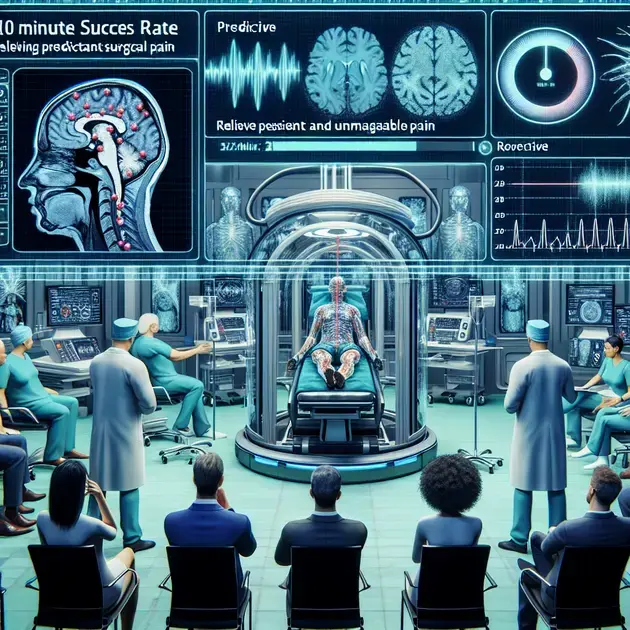Spinal cord stimulation is a surgical procedure that involves the implantation of a small device to deliver mild electrical signals to the spinal cord, effectively disrupting pain signals before they reach the brain. While this technique has shown promise in alleviating intractable pain, its effectiveness varies among patients. Up until now, doctors have had limited tools to accurately predict the outcome of spinal cord stimulation on an individual basis.
However, a team of neuroscientists and medical professionals has developed a groundbreaking 10-minute brain scan that can bridge this gap. By analyzing neural activity within specific regions of the brain, this scan can accurately determine whether a patient is likely to benefit from spinal cord stimulation. The study, which analyzed brain scans of individuals who underwent the procedure, demonstrated an astonishing accuracy rate of 95%.
With this newfound knowledge, patients can make more informed decisions about pursuing spinal cord stimulation, weighing the risks against the likelihood of pain relief. In addition to benefiting patients, this biomarker has potential implications for health insurance providers and healthcare systems. It can help optimize resource allocation, ensuring that only those most likely to benefit from the procedure undergo it. By minimizing unnecessary surgeries, this technology can reduce healthcare costs and enhance patient outcomes.
Despite its remarkable promise, the 10-minute brain scan does have limitations. Currently, it requires specialized equipment and expertise in data analysis, which limits its widespread accessibility. However, as technology progresses and research in this field advances, it is anticipated that this quick and non-invasive scan will become more readily available.
In conclusion, the development of this 10-minute brain scan offers a breakthrough for individuals suffering from intractable pain and considering spinal cord stimulation. By accurately predicting the success of this risky surgical procedure, doctors can provide patients with personalized insights to make informed decisions. Furthermore, this biomarker has the potential to optimize healthcare resource allocation, ultimately benefiting both patients and healthcare systems. As technology continues to evolve, it is exciting to envision a future where this innovative brain scan becomes a standard tool in assessing spinal surgeries.
